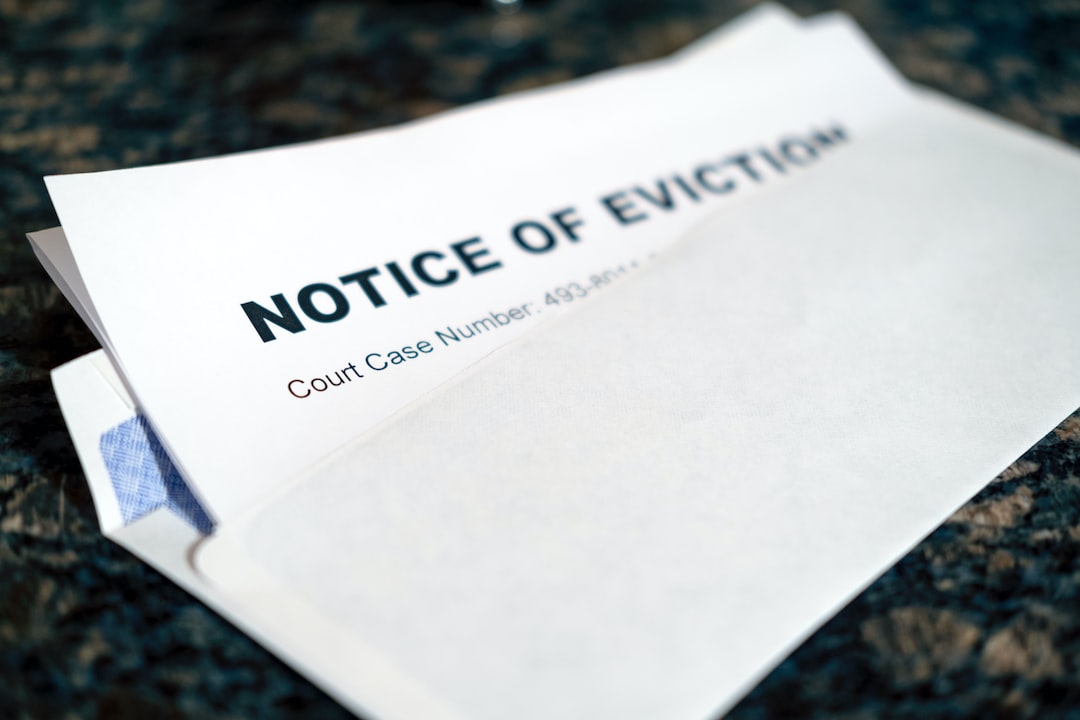Did you know that millions of eviction cases are filed in the U.S. every year?
It's never easy having to evict a tenant, but you're certainly not alone. The process can be time-consuming, costly, and stressful, no matter whether you've gone through it before or not.
If you've never initiated an eviction process before, it can be hard to know whether you're doing it correctly, or even what steps to take in the first place. Here, we break down a few things you need to keep in mind when evicting tenants.
Make Sure You Have Due Cause
When evicting a tenant, ensure that the reason you're evicting them holds up against the standards of the law. Both federal and state eviction laws need to be followed.
Examples of just cause for evicting tenants include:
- Not paying rent
- Lease violations
- Criminal activity on the rental premises
- Maintaining residence after the formal lease agreement ends
Before moving forward with any eviction proceedings, it can be a good idea to consult with your legal advisor to ensure you're in compliance with the law.
Be Sure to Provide Appropriate Notice
Tenants must be provided with what's called a notice to comply before they can be evicted. Essentially, they need to be given the opportunity to correct their behavior, pay rent, or otherwise fix the error.
In Georgia, the law doesn't give a specific timeframe between the notice of compliance and when eviction proceedings can formally begin. Check your lease agreement to see what the language says, and follow that. Generally, the timeline is anywhere from a day or two to a couple of months.
You Must Follow the Process
Once you formally initiate an eviction, you have to follow all the legal steps to avoid negative ramifications.
Once the notice period has expired, you can file and pay for a formal complaint in court, which is then served to the tenant. The tenant has seven days to respond to the notice, after which the court will schedule a hearing for you both to attend.
If the judge rules in your favor at the hearing, you then receive a Writ of Possession from the court. The tenant must vacate the premises within seven days, and you can dispose of any belongings that are left behind.
You May Have to Appeal
If the judge doesn't rule in your favor, you only have seven days to file an appeal. Until the next hearing is scheduled, the tenant is legally allowed to maintain residence on the rental property.
Keep in mind that even if you do win, the tenant can also appeal, which will similarly delay the eviction process.
You'll Need Lots of Documentation
In order to prove wrongdoing on the part of your tenant, you'll need to show proof that they've neglected to pay their rent, engaged in criminal behavior on your property, or whatever else it is that you're accusing them of.
It's easiest to keep a proactive record of all relevant material, as by the time you're planning to evict the tenant, it's likely too late to get documentation of a lot of these things.
While you can keep file folders or digital records of all this stuff on your own, a property management service can also help you with your recordkeeping.
Follow the Eviction Process
As you can see, initiating an eviction process against a tenant is not something to be taken lightly. It takes time, effort, and money to do properly, and there are many legal considerations involved in the process.
As a real estate investor in Atlanta, you don't want to deal with these kinds of problems with your rental property. Here at PMI Georgia, it's our job to help you with evictions, tenant screening, and more.
Ready to outsource your property management? Get in touch with us today to set up an appointment!


